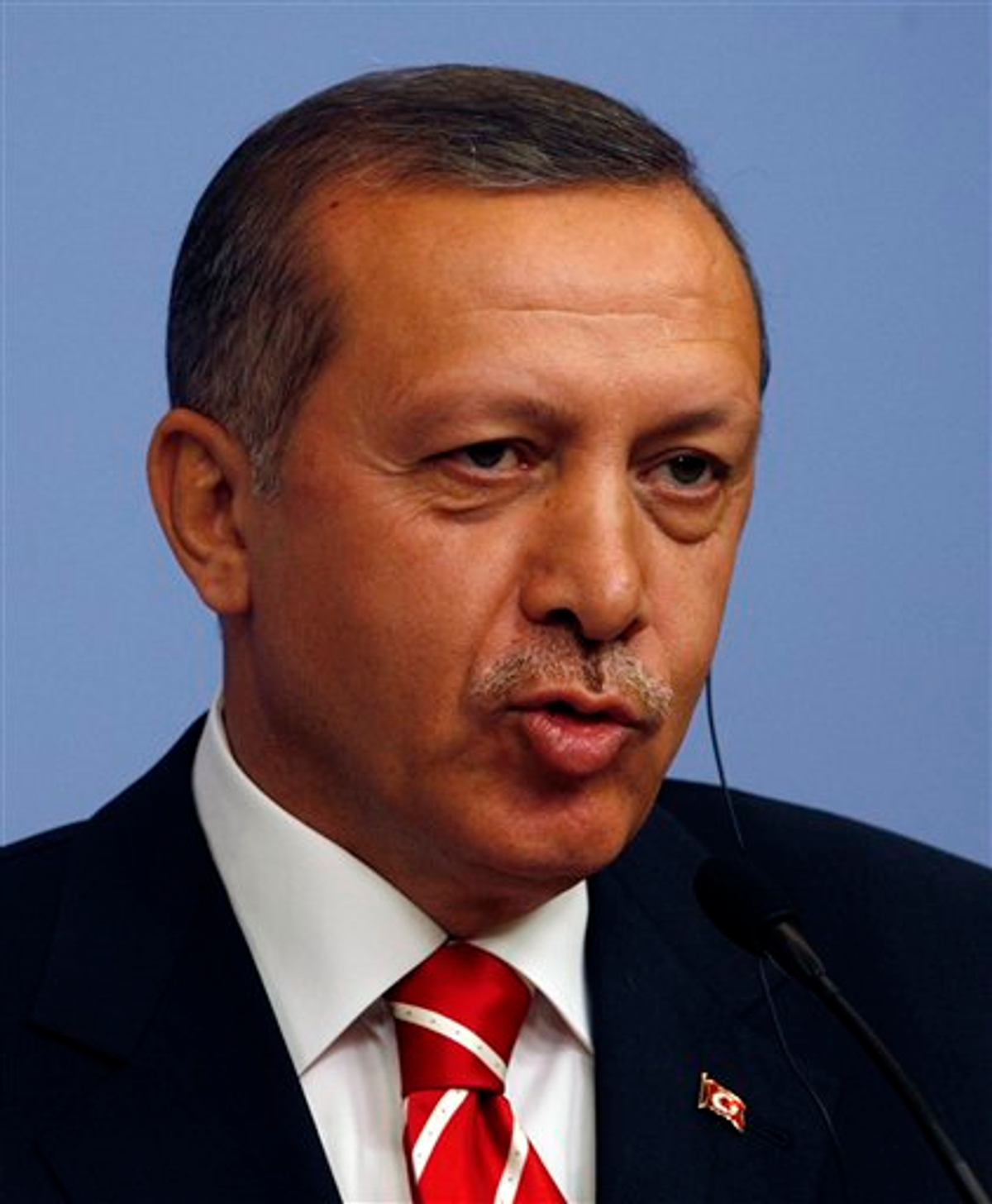ISTANBUL, Turkey -- If the power to issue an ultimatum is a sign that one has made it in global politics, then Turkey has, in the last couple weeks, truly arrived.
 Turkey, in fact, is throwing them around like a superpower. Lending credence to the official stance in Ankara that all neighbors are equal, it issued three recent ultimatums -- one to an Arab state, one to a Jewish state and one to the European Union.
Turkey, in fact, is throwing them around like a superpower. Lending credence to the official stance in Ankara that all neighbors are equal, it issued three recent ultimatums -- one to an Arab state, one to a Jewish state and one to the European Union.
The first was for President Bashar al-Assad's regime in neighboring Syria, which has been a headache for Ankara since a popular uprising began about six months ago. Turkey had first politely asked Assad to reform and listen to the requests of the Syrian people. After five months of little change, Turkish Foreign Minister Ahmet Davutoglu called on Syria to stop the violent crackdown "immediately and unconditionally" or risk repercussions.
After having failed to convince the Assad regime to stop the crackdown and take the steps demanded by protesters, Turkey has become even more clear in its support of the pro-democracy activists.
"Those who are oppressing their people in Syria will not be able to remain in power," said Prime Minister Recep Tayyip Erdogan on a recent visit to Egypt, where Cairo and Ankara announced a high-level cooperation council to strengthen ties.
"Turkish foreign policy is harnessing the bonds of religion. It has been appealing not to the governments in the Middle East but to the people by emphasizing justice and kinship through religion, all the while emphasizing Western values," said Ali Karaosmanoglu, director of the Foreign Policy and Peace Research Center in Ankara.
The prime minister was met with a hero's welcome in Egypt, complete with Turkish flags and posters singing his praises, thanks in large part to his ever more harsh rhetoric against Israel. Once allies, Turkish-Israeli relations are at an historical low.
Relations between the two countries have been on the rocks ever since negotiations between Israel and Syria -- mediated by Turkey -- came to an abrupt halt after Israel's Gaza offensive in 2009. But it was Israel's raid on an aid ship bound for Gaza last year, which left nine Turkish citizens dead, that was the final blow.
After the Israeli raid on the Mavi Marmara, Turkey offered its second ultimatum, this time to Israel. Apologize for the raid, Turkey demanded, pay compensation to the victims and lift the blockade on Gaza, or it would eject the Israeli ambassador, downgrade relations and pledge its support for cases against Israel's raid in the International Court of Justice.
After Israel refused to apologize, Turkey made good on its threat to eject the ambassador and downgrade relations in early September.
The final ultimatum that Turkey has issued recently was to the European Union. In years past, such a move would have been unthinkable, but intransigence from certain European quarters on the issue of Turkey's accession may have finally worn Ankara's patience to the breaking point.
"There was always a light at the end of the tunnel with regards to the EU, now there is no such light," Karaosmanoglu said.
If the Republic of Cyprus takes over the six-month rotating presidency in July 2012, "we will at that point freeze our relations with the EU," said Deputy Prime Minister Besir Atalay.
The issue of Cyprus has been an obstacle in Turkey's bid to join the European Union. The Republic of Cyprus represents the Greek southern part and is the only internationally recognized government on the island, which has been divided since 1974, when Turkish forces invaded the northern part as a response to a Greek-engineered coup. Cyprus, an EU member, has in return blocked certain "chapters," or areas of negotiation for entry in to the EU, effectively stalling Turkey's bid to join the union.
Further complicating the issue is the joint venture between Cyprus and Israel to explore for natural resources in the eastern Mediterranean. The two countries signed an agreement outlining an exclusive economic zone and rights for exploring natural resources last year, which Ankara wanted to delay until the island is unified.
Turkey has called the explorations "a provocation" and threatened to send its own research ships to begin oil and gas exploration next week.
Turkey's ultimatums to the European Union and Israel have raised the question of whether or not the country has been turning away from its traditional role as a partner for the West.
But to allay fears, in the midst of the diplomatic showdown with Israel, Turkey announced its plans to host a NATO missile shield.
"It's a strong signal to the rest of the world that Turkey is still a partner for the West," said Irem Koker, a foreign editor with Hurriyet, a Turkish daily newspaper. "It is the strongest and most concrete step that Turkey has taken in the last five years to prove that."



Shares